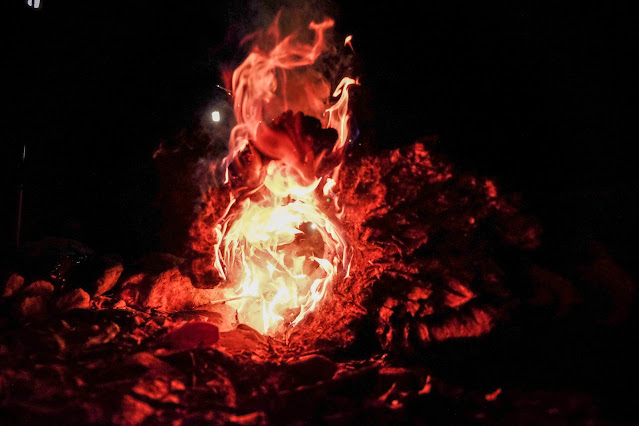I didn't mean to write a main character so like myself.
Of course, when I first wrote the Fire Faery Story, I did; the FF Story started out as a fantasy story starring me and my friends, ages 8–12. (Dear heavens. Actual children.) But when I rewrote the story at age eighteen, the characters became characters. I needed different personalities for the story, and—let's face it—there are major hazards to writing a story about actual people in your life. My main character also became a character, though there were shades of Young Stephanie in her.
When I rewrote the story again at age twenty-seven, Ember remained a character. Sure, I put some shared quirks in there (we both take promises too seriously, we both wear crop tops), she loves to dance, and she'd rather be angry than sad, but she was different from me. I had matured beyond the things that plagued her. If anything, she was a really young, slightly alternate-reality version of me. A bolder version. A less empathetic version.
*steeples fingers together and looks deeply into the camera*
As it turns out, that may not be quite true. Apparently my subconscious has been clawing its way to the forefront for the last seventeen years, kicking and shrieking, and it's only been in the last year that I cocked my head and frowned and said to myself, "Hang on. Do you hear something?"
It's not that Ember and I are the same person. She really is a younger, bolder, and less empathetic person than I am. But we share some fundamental similarities that I never knew about myself. Her relationship with romance, her general MO (ready, fire, aim), and her use of anger as energy have slowly been creeping up on me. My unrelenting drive to work on the story even when the wise thing to do would be to stop, ponder, and recalibrate bears uncanny resemblance to the way Ember pursues her goals when there is literally no way for her to succeed until she takes the time to acquire the necessary skills.
I've lost track of the number of times that I've been thinking about the story and grunted out an, "Oh," from the gut punch of walking face-first into a mirror.
On one hand, how freakin' cool. How convenient to learn about my subconscious in a literal way. Like when Ember does X, I can see that it's because of Y, and then see how that translates to my real life. (What I do with this information is unclear so far. But I guess being aware of problems is the first step.)
On the other hand, this means that if something is a genuine blindspot for Ember, odds are it's a genuine blindspot for me. Which means I can be three years into a rewrite and one year into Aaron saying, "Okay but what's Ember's growth arc?" and still not understand what he's asking.
I mean, yes, I want a dynamic character; I don't want to my main character to be static. But I thought her character growth could be, like, going from a dancer to a dancer and a fighter. She learns some new skills. She learns how she feels about different characters. Maybe she even questions some beliefs she's always held.
But I reread this one scene last week. It's a scene near the beginning where Ember is filled with a deep rage that makes her bones vibrate and changes the entire purpose of her life. I felt good about the passage when I wrote it. It rang true. It felt strong enough for the situation. I let that rage be the virtue—yeah, virtue—that drives Ember forward and carries her through completing the climax.
But when I reread this scene last week, it made me feel kind of cold and sick. That's not...heroic. That feels...gross.
That kind of rage feels like something a character needs to grow away from. I can't write a story where the main character's anger isn't addressed, where we don't come to that time-honored conclusion alongside her that revenge doesn't heal you*.
I didn't realize that that's what was happening, because Ember didn't realize that that's what was happening. She felt good about her anger. She was using it as a tool, which...you can do. But there are consequences. It doesn't just work like that without doing some damage. Anger and arrogance don't just magically deliver you correct answers and victory. That's not a true story.
Now, part of what's happening is that the story is a trilogy—Ember will have matured a lot by the end of Book 3—but I think she needs to come around at least a little bit in Book 1. It's wild to me that I couldn't see that something was wrong until now.
But, as Aaron said, "This is one of the inherent dangers of self-inserts."
To which I replied what I still say now, "I didn't mean to do it."
~Stephanie
* The story doesn't overtly tout anger as a virtue or imply that revenge heals you—and the story does have other true, positive messages—but it doesn't overtly debunk those ideas either. I think I'd like to debunk them on purpose.

No comments:
Post a Comment